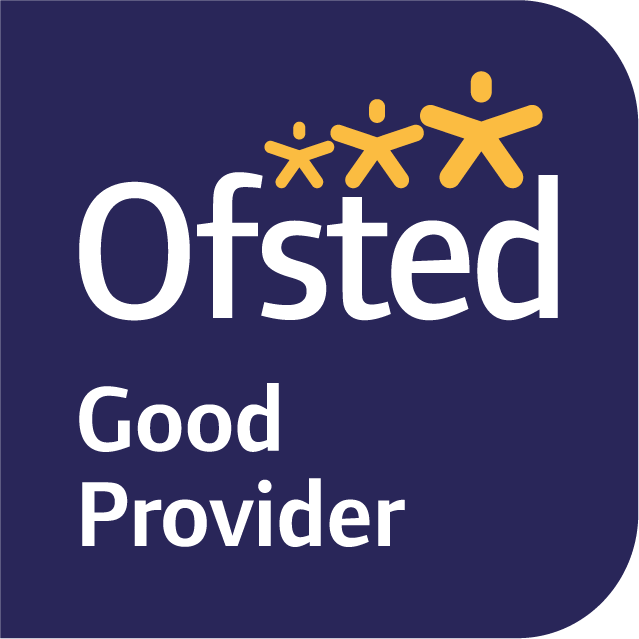Religious Studies
The intent of the Religious Studies curriculum at Thornhill Academy is to help our pupils gain an understanding of the varied beliefs in our school, local, national, and global communities. By understanding these beliefs and views, and how they can influence believers and affect their lives, students are better placed to show tolerance and ultimately coexist. The curriculum also allows and encourages pupils to form their own informed views on many of the big questions in life, as well as a wide range of ethical issues.
Key Stage 3
At key stage 3, pupils study a variety of religions, beliefs, and ethical issues. We start year 7 with our bridging module which acts as the foundation to their further studies. We start with a strong focus on the core beliefs of world religions and the ways in which symbolism is used in different religions to express belief. Moving on, students then answer the question, “Who is Jesus?” as they study beliefs about and influence of Jesus on Christians as The Son of God and on Muslims as a prophet. Finally, year 7 students answer the question, “Who are Muslims?” as they study the core beliefs of Islam and how these beliefs influence the lives of Muslims in modern Britain.
In year 8, students answer the question, “Who are Christians?” as they study the core beliefs of Christianity and how these beliefs influence Christians in modern Britain. Students then begin to learn about the wide variety of religious and non-religious beliefs around the ultimate questions, “Is there evidence for God?” and “How did we get here?”. Year 8 students end the year by answering the question, “Who are Sikhs?” as they study the core beliefs of Sikhs and how these beliefs influence Sikhs in modern Britain.
In year 9, students begin the year by investigating religious and non-religious beliefs about and responses to the issue of justice and reconciliation. Moving on, students investigate religious and non-religious beliefs about and responses to issues involving prejudice and discrimination including core beliefs about equality and tolerance. Finally, year 9 and key stage 3 concludes with a study of religious and non religious responses to the question “Can there ever be a lesser of two evils?” as our students examine a variety of view points on and beliefs about a range of challenging ethical themes.
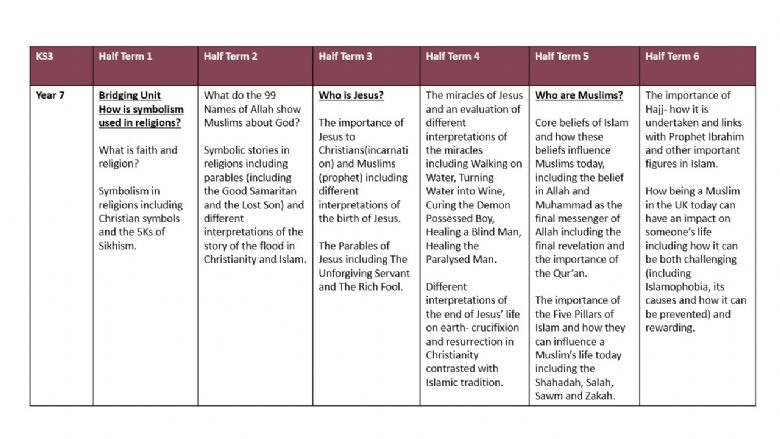
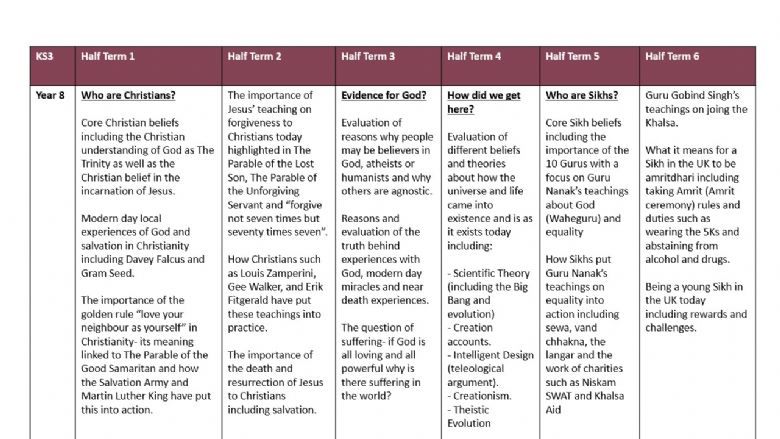
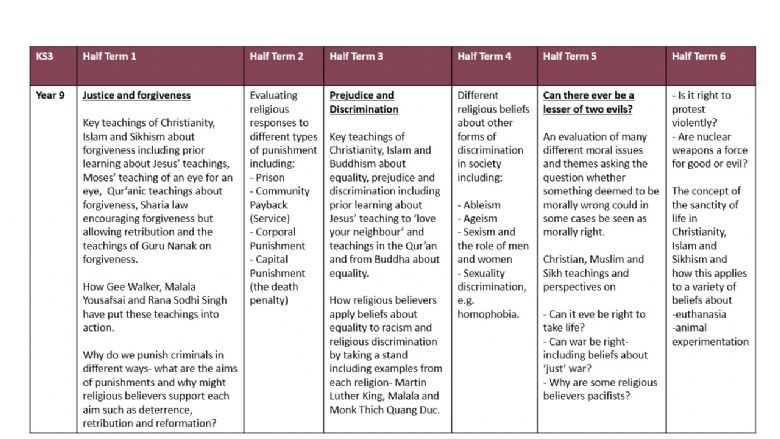
Key Stage 4
In year 10 and 11, students studying religious studies study AQA GCSE Religious Studies Syllabus A. The course is split into two main areas, each with an examination lasting 1 hour and 45 minutes to be sat at the end of year 11. By the end of year 11 students will have studied the following units of study:
Exam 1- Beliefs and Practices
- Christianity Beliefs
- Christianity Practices
- Islam Beliefs
- Islam Practices
Exam 2- Thematic Studies (non-textual)
Students will study similar and contrasting Christian and Muslim beliefs about and responses to the following contemporary themes:
- Religion and Life
- Religion, Crime and Punishment
- Religion, Peace and Conflict
- Religion, Human Rights and Social Justice
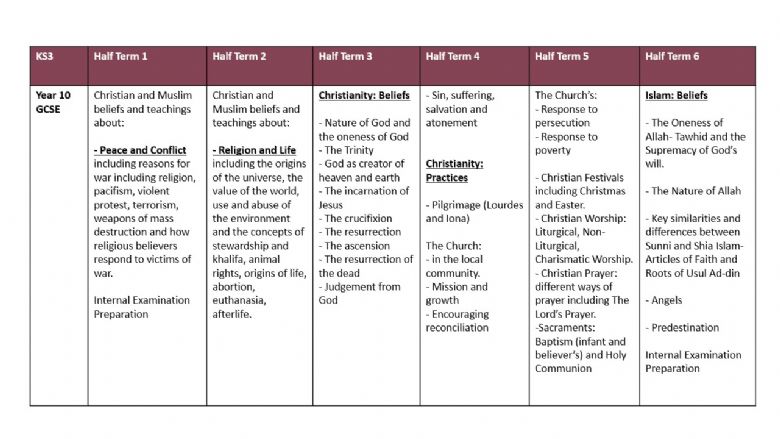
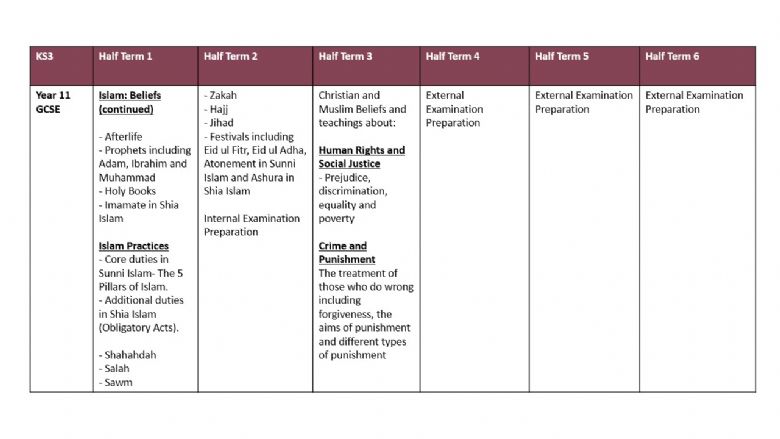
The full syllabus in detail can be found at: https://www.aqa.org.uk/subjects/religious-studies/gcse/religious-studies-a-8062
Curriculum Support
Please find below all the support documents you need for Religious Studies.
Term 1
Term 2
Term 3

